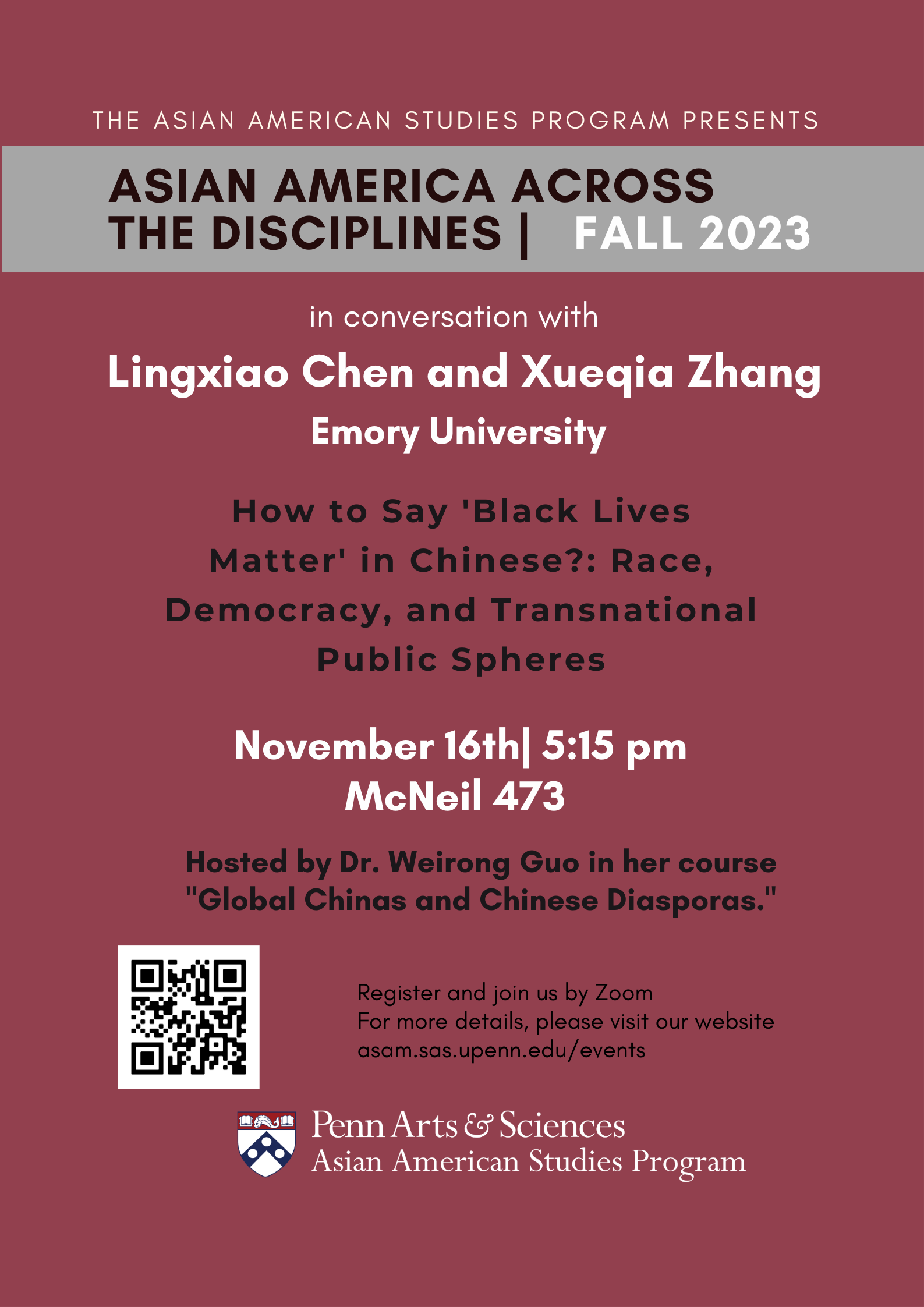Event

Join us for the Asian America Across the Disciplines Series hosted by Dr. Weirong Guo in the course "Global Chinas and Chinese Diasporas." Lingxiao Chen and Xueqia Zhang will be presenting their research on transnational discourses on the Black Lives Matter movements.
The event is open to Penn community in person or by Zoom. Please register here to join by Zoom!
Abstract: The existing literature on transnational discourses has yet to fully address three important questions: How is democracy discussed in transnational discourses? How is race discussed? How does the State’s involvement in the global public sphere shape the discourses of democracy and race? This article aims to address these gaps by studying the discourses about the Black Lives Matter movement in the Chinese-speaking, transnational public spheres. We collected over 2,000 texts from traditional and social media. We analyzed patterns of narratives and comments in the texts with two theory-informed methods—the dramatic analysis of narratives and the codes analysis based on the civil sphere theory. We found that, first, the Chinese State’s two modes of involvement—restriction, and intervention—significantly shaped discourses of democracy, and such influence varies across different publics. Second, the discussions of race are mainly influenced by the transnational experience of the participants of discourses, particularly their self-identities as spectators of a remote racial issue or members of the society where the issue happened. Third, two factors in the Chinese horizon of interpretation were translated into consistently pervasive impacts on the transnational discourses: the State’s preference for order and stability, which even permeates the language of those opposing the State; and the racist image of “uncivil Blacks,” which reinforces the preference for order and stability. Our findings suggest that the State remains a powerful entity in transnational discourses of democracy and race. Its influences, however, are subtler and more latent than our conventional wisdom.
